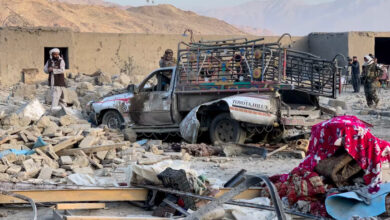
US State Department Regional Spokesperson Samuel Werberg has revealed the US’s final position on the Grand Ethiopian Renaissance Dam (GERD) dispute following the failure of negotiations between Egypt, Sudan, and Ethiopia regarding the rules for filling and operating the dam.
The spokesperson said that the US is aware of the impact this has on the people of Egypt and Sudan, and that US Secretary of State Antony Blinken has spoken with President Sisi about the GERD and the importance of water and the Nile River to Egyptians, according to the RT Arabic website.
During an interview with Egyptian media personality Ahmed Moussa on the “Sada El Balad” channel, Werberg added that the “US believes that a diplomatic and negotiated solution is possible.”
However he emphasized that the US cannot impose any decisions on countries, especially in light of its focus on African countries being a sensitive region with strategic importance.
Tensions rising
In recent months, tensions have risen between Cairo and Addis Ababa following the failure of negotiations over the Nile River waters.
At the beginning of September, Egyptian Foreign Minister Sameh Shoukry sent a letter to the UN Security Council rejecting the recent statements made by Ethiopian Prime Minister Abiy Ahmed regarding the fifth filling of the GERD.
He stressed Egypt’s categorical rejection of Ethiopia’s unilateral policies that violate the rules and principles of international law, which constitute a clear violation of the Declaration of Principles Agreement and the Security Council’s presidential statement of September 15, 2021.
The Egyptian letter to the UN explained that the end of 13 years of negotiations with Egypt’s sincerest intentions came once it was obvious to everyone that Addis Ababa is only interested in using the negotiations as a cover to prolong reaching any solution.
It added that Ethiopia is seeking to legitimize its unilateral policies that contradict international law and to hide behind unfounded claims that these policies are based on the right of peoples to development.
Ethiopia, in turn, responded with a letter to the Security Council in which it claimed that Egypt had participated in negotiations over the past decade with the sole aim of obstructing its progress and returning to its rigid positions, claiming that Egypt’s insistence on its historical share of the Nile waters is borne from colonial-era deals and a refusal to accept any different outcomes.




